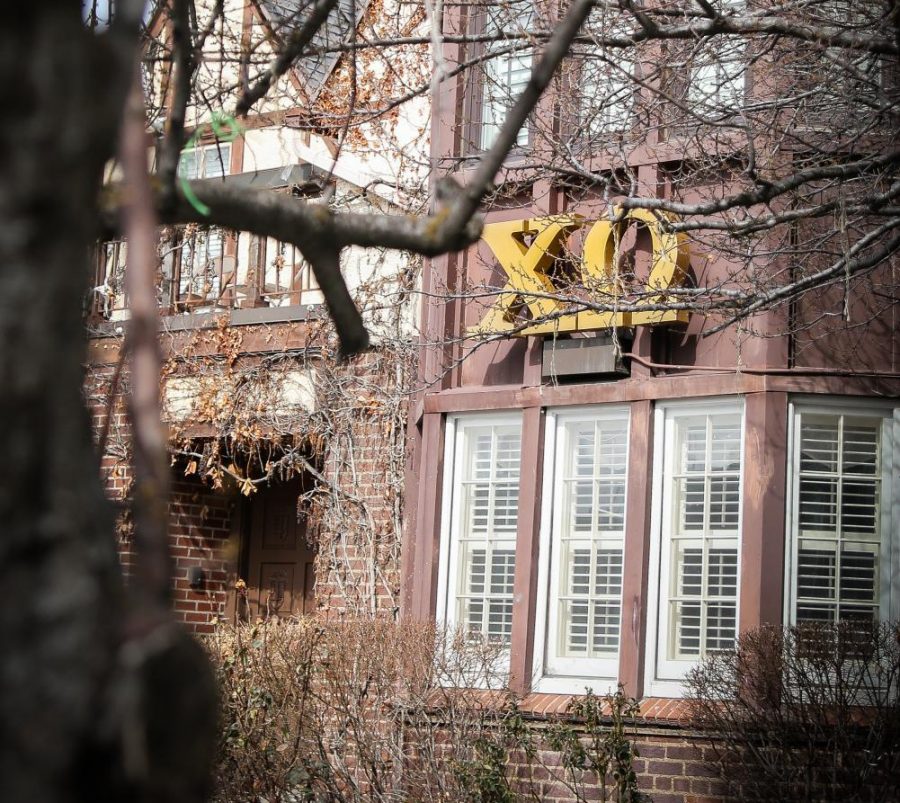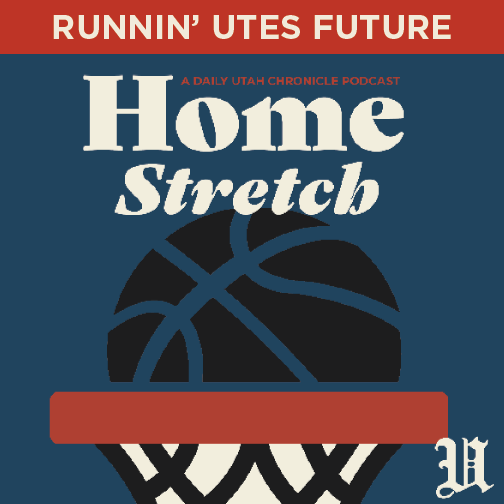How is COVID-19 Impacting Greek Row Housing?
Greek Row at the Unviersity of Utah in Salt Lake City on Wed. March, 7, 2018. (Photo by Cassandra Palor | Daily Utah Chronicle)
March 29, 2020
The University of Utah and other campuses around the nation have taken precautionary measures to stop the spread of the novel coronavirus — COVID-19 — by closing and limiting who lives in the dorms and other housing facilities. These measures have included sending students home for the remainder of the semester. Now some Greek houses face a similar issue.
On March 23, Housing and Residential Education announced students were encouraged to move all their belongings by Friday, March 27. A limited number of students were allowed to stay in housing if they were unable to return home.
Housing, according to the U statement, will only be prioritized for “international students, students experiencing homelessness, foster youth and students with known health or safety risks.”
Greek houses operate as a separate entity from the U housing. The decision to stay open remains dependent on individual sororities and fraternities and their headquarters.
The houses are now determining the best way to continue with this situation. For members of Alpha Chi Omega, the process began by moving out of the house on Sunday, March 22. Members were told the house was going to be closed for the remainder of the semester.
Their contract was supposed to go until May 2, on a similar schedule to on-campus dorms, but due to the pandemic, the national headquarters decided it would be best to move students out.
Emily Kerr, a junior double-majoring in criminology and political science who lived in the Alpha Chi Omega house, said the transition has been stressful but understands why the choice was made.
Kerr said in a phone that she was already in self-isolation prior to getting the message from national headquarters.
“I was in self-isolation and like other members of my house — a couple of the other girls who lived in [the house], they also were under self-isolation. So that was definitely very stressful that we could potentially… harm any of our sisters,” Kerr said.
Kerr said she had been anticipating the closure. A week prior, her house had met on a Zoom meeting to discuss the possibility of closure. She said her chapter has been very verbal and communicative during this time.
Some sororities, such as Kappa Kappa Gamma, have been advised not to talk to U Student Media and did not comment for this story.
The Greek houses, depending on the organization, typically house around 12 to 18 people. Now the houses are now working with six people in them, according to Jess Turuc, the Director of Fraternity and Sorority Life.
Turuc said that the only students left in the house were “just who needs to be here. It’s not a full house.” Turuc said fraternities were taking health concerns seriously. “The severity of what is happening is definitely being heard and taken into account,” she said.
Turuc mentioned some organizations have spoken about individuals who aren’t supposed to be at the house. She clarified this is in reference to a guest or a non-resident, only those who have signed the lease and the agreements to be there are allowed. Turuc said the chapters remaining open as of March 25 are Beta Theta Pi, Kappa Sigma, Pi Kappa Alpha, Pi Alpha Theta, Sigma Chi, Sigma Nu and Sigma Phi Epsilon.
i.martinez@dailyutahchronicle.com
Editor’s note: Signs and symptoms of COVID-19 include fever, dry cough, tiredness and shortness of breath. These symptoms are believed to occur between two and 14 days after a person is exposed to the disease. If you have these symptoms and have recently come into contact with a person who is known to have COVID-19, or if you have recently traveled to an area with community spread of the disease, you should call your doctor. Areas with community spread of COVID-19 are believed to include China, South Korea, Italy, Iran and Seattle. If you do not have a doctor who you visit regularly, please call the Utah Coronavirus Information Line at 1-800-456-7707 or the University of Utah Health hotline at 801-587-0712. Do not go to a healthcare facility without first making arrangements to do so.












